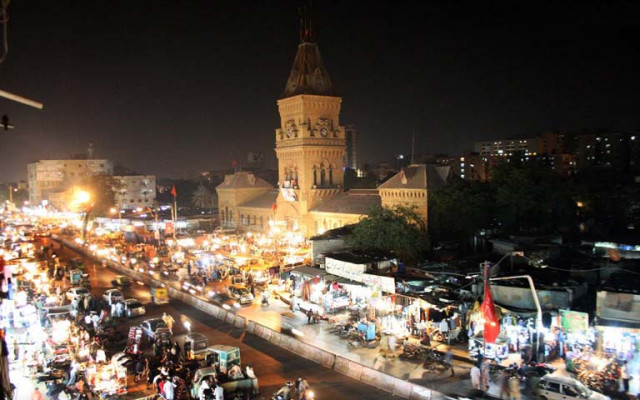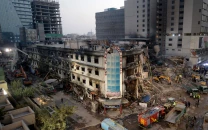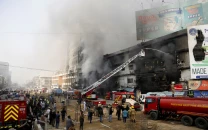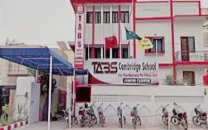Karachi population to increase by 50% in 15 years
Tokyo, New Delhi, Shanghai to be top three cities of the world in terms of housing maximum number of people by 2030

Karachi’s population will increase by 50% in the next 15 years to 24.84 million. PHOTO: ONLINE
In the next 15 years, Karachi will be the seventh most populous city of the world, forecasts a new Asian Development Bank (ADB) report, highlighting the urgency for making strategies to manage resources and build infrastructure for transforming the country’s commercial hub into an engine of growth.
Karachi’s population will increase by 50% in the next 15 years to 24.84 million, according to “Key Indicators for Asia and the Pacific 2015” report of the ADB. The statistics put the current total population of the country’s largest metropolitan city at 16.62 million, making it the 12th most populous city.
Pakistan has 18th largest ‘middle class’ in the world: report
Tokyo, New Delhi, Shanghai will be the top three cities of the world in terms of housing maximum number of people by 2030.
Lahore, which is currently not included in the list of 30 most populous cities, is projected to have a population of 13.03 million, making it the 27th most populous city by 2030, according to the report.
The ADB population growth forecasts are slightly lower than those projected by the previous Pakistan Peoples Party government in its Framework for Economic Growth (FEG). Prepared by the Planning Commission, the FEG placed the urban development at the centre of economic growth, arguing that the cities can become engine of growth, provided there is better planning and utilisation of resources.
The curious case of Karachi’s ghost population
The FEG showed Karachi population at 27.9 million by 2030 and that of Lahore at 14.6 million.
Currently, the city planners have failed to cope with the growing needs of the population, resulting in unplanned development in the city, which is not catering to the needs of the people.
The ADB report says that the urban population is rapidly growing. As against 34% urban population in 2005, the number has grown to 38.6% till last year. The Framework for Economic Growth has projected that by 2030 half of the country’s population will be residing in cities.
World Population Day: The power of birth
Benefits of cities
According to the FEG, proximity and density create large markets for goods and services. In turn, large markets build social capital, allow interactivity, nurture innovation and entrepreneurship. Large-scale production and diverse services demand efficiencies and specialisation. Innovation occurs in dense clusters, where there is intense competition.
Secondly, the FEG argues that cities are poor-friendly. They are open to people with different backgrounds, affiliations, offer jobs and self-employment. Social mobility, from rags to riches, happens in cities. However, this cannot be achieved without proper planning of resources and building infrastructure. Karachi faces challenges like commercialisation of residential properties due to complex building regulations, controlled by half a dozen departments.
Women in rural Pakistan champion the cause of population planning
Growing population, the ADB report highlights, is creating problems for people, adding that Pakistan is placed among top 11 economies of Asia and Pacific Region that are facing challenge of malnutrition. About 32% of the total population is starving, second only to Bangladesh where 32.6% population is facing problem of malnutrition, according to the findings. Similarly, 22% of Pakistan’s population remains below minimum level of dietary and energy consumption.
The education indicators are also not as good as of the other countries. In Pakistan, at least one in five children of primary school age is out of school, according to the ADB.
Population boom: Pakistan will have over 100m voters by 2018
Skill shortage and skill mismatch, the report states, are also serious problems in many developing countries, including those in Asia. Per capita income in a typical developing Asian economy can more than double in a 20-year period if cognitive skills can progressively reach levels seen in more advanced economies, it suggests.
Correction: An earlier version of this story mistakenly reported that Karachi's population would double in 15 years. The error is regretted. Editor
Published in The Express Tribune, October 21st, 2015.



















COMMENTS
Comments are moderated and generally will be posted if they are on-topic and not abusive.
For more information, please see our Comments FAQ